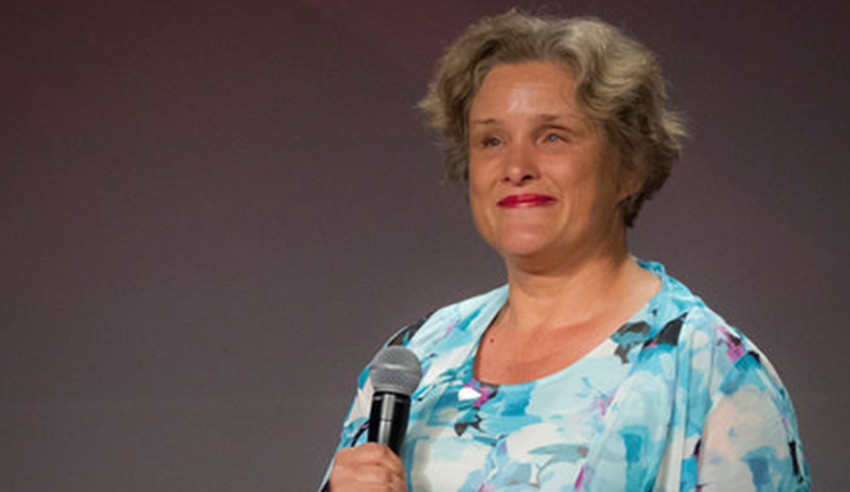Born with total blindness, author Amanda Heal spoke about how lawyers can overcome challenges in their lives and careers by finding their life’s purpose.

Ms Heal recently joined The Lawyers Weekly Show to talk about the reality of trying to navigate a career in a sighted world, particularly about her 17-year stint in government law, and how experiencing a “vocational epiphany” gave her the tools to write two books, become a keynote speaker, and impart some wisdom to future lawyers about how they can fulfil their life’s purpose.
“I went off to London and started studying physiotherapy, and 18 weeks into the course, they went, ‘Hmm. We don’t think you can continue because you have spatial awareness problems and we think you should return to Australia and study something more academic’,” she said.
When she returned to Australia, Ms Heal picked up a deferred commerce course at ANU and was able to study law under the condition that she did a combined degree. Once finished, she set off to find a career in law.
“After 147 job applications, I got my first job. And I only got that job because it was someone I’d known at uni and she was working for Comcare,” Ms Heal said.
While she was successful in gaining a career in government law, Ms Heal reminisced about the challenges she faced as a blind person working in an environment where those challenges were things that sighted people took for granted, such as faxing or doing research.
Despite being made redundant from her role in government law, Ms Heal never lost the need to help other people in whatever way she could, stating that the law was just one way she could live out her life’s purpose.
On her epiphany, Ms Heal said, “I was just taken back on a journey through my life, and picked up themes that ran through my life. And helping people was one of them, encouraging them was another, speaking was another. And at the end of that, it all fell into place.”
Ms Heal went on to write two books and began her training as a speaker before eventually perfecting her keynote speech and developed her own five-step model known as “FOCUS”.
“Fix your eyes on the prize, not the problem. Optimise your goals for an outstanding outcome. Connect with your conviction for greater consistency performance. Upgrade your courage for unbelievable results. And finally, see your success by putting your courage into practice,” she said.
When asked about how lawyers would know if they’re living out their true purpose, Ms Heal said that “when you think about doing that thing, it’ll get you excited. It lights you up. It makes you get out of bed in the morning because you’re excited about it,” and that one will be passionate about what they do.
Ms Heal makes the distinction that a life purpose need not be their career, rather it could be something that one does outside of working, and that simply being content with the position that someone might be in is the minimum.
“If you’re content and you’re resistant because you’re content, then fine, stay content. That’s good. That’s really good. But if you’re unhappy or you’re very unhappy, I guess you’ve got to weigh the level of unhappiness against the risk that discovering your life’s purpose will bring, and also the benefits,” she said.
The transcript of this podcast episode was slightly edited for publishing purposes. To listen to the full conversation with Amanda Heal, click below: